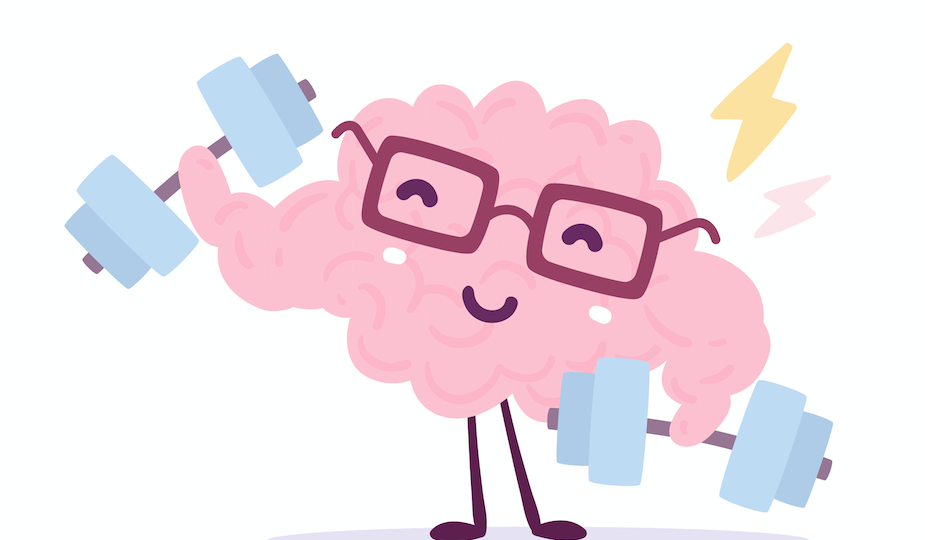Have you ever wondered what happens to the brain when we exercise? Your doctors may have told you that exercise has a huge impact on mental health. But does moving your body really make you feel less anxious and depressed?
What creates that happy and energizing feeling that washes over us after a good workout and into the rest of our day?
Many people are aware that regular exercise and physical activity have health benefits. Some of these benefits include increased muscle strength and endurance, along with increased cardiovascular capacity— in other words, better heart health. But what about your mental health?
A lot of people claim that exercising gives them increased energy, allowing them to be more alert and focused, while others claim that exercising makes them feel less stressed and puts them generally in a good mood even after they step out of the gym.
Other benefits of exercise include:
- Improved sleep
- Increased interest in sex
- Better endurance
- Reduced tiredness that can increase mental alertness
- Weight reduction
- Reduced cholesterol and improved cardiovascular fitness
Whether your goal is to improve performance, lose weight, get stronger, or live a longer and healthier life, for a majority of people the first effect that we feel is usually the same: an overall difference in how we feel about ourselves and our environment. And that brings us back to the question:
What happens to the brain when we exercise?
As we exercise our brain releases what is called brain chemical hormones or neurotransmitters. These neurotransmitters relay messages between the nerve cells in our brains and play a crucial role in the way we feel both mentally and physically. Any imbalance of these chemicals can lead to negative symptoms or even illnesses. Although many different kinds of neurotransmitters are released during exercise, we will only focus on three specific kinds that play a role in our mental health. The chemical hormones that will be discussed are endorphins, dopamine, and serotonin. Without getting too in-depth, we will briefly look into each of these neurotransmitters separately as it is released from the brain during exercise and how it affects our mental state and well being.
Endorphins
This neurotransmitter acts as a natural morphine-like substance when attached to our opioid receptors. It is also responsible for reducing our perception of pain and acts as a natural pain reliever during the different stresses we put our bodies through during exercise. Endorphins are also responsible for reducing stress and depression by causing a euphoric effect or natural high that puts you in a better state of mind. This is why many people who exercise before their work shift claim they feel more focused, awake, alert, and are ready to attack their day. Those who put exercise after their work shift claim that exercise helps them cope with stress from the events of a busy day and additionally feel calmer and more relaxed. Although short-term effects can be noticed, endorphins can take some time to build up in our systems. As you continue to exercise you will notice the effects and long-term benefits of this neurotransmitter.
Dopamine
This chemical hormone is released when a reward is expected through behaviours and actions we perform. It’s the same relationship that a dog has to a treat. Dopamine also boosts our motivation and attention to accomplish specific tasks for the feeling of satisfaction. It ensures us that the things that we do are actually worth doing. In relation to exercise whether short or long-term, those who remain consistent with their workouts will feel the full effect of this hormone when progress and achievement are noticed in the direction that caters toward their fitness goals. For example, when you start to reach your functional goals, that addictive dopamine effect will kick in causing you to want to hit the gym again so you can achieve more. Dopamine is in charge of the reward center in our brains and will reward you along the way to keep you focused and keep you on track.
Serotonin
This chemical is largely responsible for our overall mood, how we feel, and our overall sense of well-being. It is also said that increased serotonin can help improve appetite and sleep cycles. Low levels of serotonin are also linked very closely to loneliness and depression. Exercise (especially through cardiovascular training) has been proven to increase and balance the production and release of this hormone. Adequate levels can increase your mood and counteract that loneliness and depression. It can improve self-esteem, self-confidence, and perception of self and self-worth. It may also give you the feeling of being someone of importance to others. Other great ways to keep serotonin levels in check are to expose yourself to natural sunlight, a properly balanced diet, massage, and surrounding yourself with others with the same interests, goals, and positive mindsets like family, friends, or fitness groups like us!
The brain releases many different kinds of neurotransmitters as we exercise that impact our mental heath. Overall, as exercise becomes part of your lifestyle, improvement in cognition, attention, energy, mood, and motivation will become apparent. Finding ways to keep our brains healthy to balance these neurotransmitters will keep you motivated in tackling your fitness goals. You will not only improve physically and aesthetically, but you will also notice a difference mentally, the way you interact with others, and your environments as you strive towards a better you.
May 3-9 is the Canadian Mental Health Association’s (CMHA) Mental Health Week. We know that not every day is easy, but we’re here to help you through it—the good days and the tough ones! During this week, we encourage our community to use the #getreal to talk about the realities of mental health. The CMHA says it’s important to “embrace all of your emotions—whether they feel good or challenging or difficult. It’s all part of being human.”
Are you ready for change to better your physical health to boost your mental health? We can help!
Reach out to us to find out how you can fit feel-good fitness into your life.



